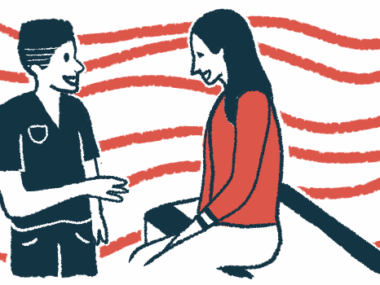Prayers + Life Lessons = Attitude Adjustment
Written by |

The Serenity Prayer
Most people know about the Serenity Prayer. It is a favorite among people with alcohol or drug addictions or those struggling to stop blaming themselves or others for the happenstance of life.
Many people have memorized it: “God, grant me the serenity to accept the things I cannot change, the courage to change the things I can, and the wisdom to know the difference.” It can be repeated as a mantra to get through a difficult day, a temporary dilemma, or a challenging life.
This simple prayer has universal appeal because it can be applied to everything from family relationships to natural disasters, and all the professional, financial, and political situations in between. It is at once comforting and empowering.
It’s also a trick. The only thing you can change is yourself.
Life lessons
Serenity is not the prevailing mood in an emergency room. Doctors and nurses are hustling to hold the line between life and death. Patients are either panicked or passed out. Family members are in shock.
At the onset of my husband’s aHUS, I was up all night in the emergency room. As I began to grasp the severity of the situation, the Serenity Prayer did not enter my thoughts. Instead, I quickly went through the first two stages of grief: disbelief and anger. This. Cannot. Be. Happening. This is not fair! I knew, predictably, in the next moments I would be reduced to bargaining with God.
I felt like a helpless child. My mind wandered back to the petitions I had made in my youth when confronted with perceived crises beyond my control.
At 4, I had complained about my brother to my mother. She was too busy making dinner to deal with the issue, so, now doubly injured, I took the complaint to my father. Rather than make everything right, he stopped me mid-sentence to inform me, “Nobody likes a whiny kid.”
A decade later, the extended family discussed some conflicting obligations and schedules. The solution was not to my liking. With that overinflated sense of righteousness and drama that only a teenager can think is proportional, I tried to appeal the decision to my wise uncle, citing its tremendous injustice to me. His answer was simple: “Understanding that life is not fair is a true mark of maturity.”
Those were tough lessons, taught in single sentences that have stayed with me and served me well. They did not bode well for my chances of success in pleading with God for my husband’s life. I would find my whining and immaturity unappealing if I were God.
The Audacity Prayer
As I mulled it over in the hospital, I stopped grousing and admitted that I did not expect life to be fair. In fact, at times I have been fortunate that it is not. Sometimes I have been saved from what I thought I wanted and deserved, like a few jobs. Other times, I have been surprised to get better than I deserved, like my marriage.
Suddenly, my inner grown-up came to her senses and I scolded myself. “Catch yourself on! You have had a better, healthier, longer life together than you ever expected. You just celebrated a big anniversary and you still like each other. Life has been more than fair to you.”
Right. My attitude changed and my prayer was clear and sincere: “Thank you, we’ve had a great life, better than I ever hoped for. I want more.”
I don’t think I even remembered to say “please.” I call it my Audacity Prayer.
The Answered Prayer
It worked. Initially, it worked on me, as I immediately felt comforted and empowered by my own gratitude and impertinence. Then, it worked on the doctors who, like all human beings, have more tolerance for stupid questions if you thank them first for their time and efforts. Most importantly, it worked on the patient, who realized he was wanted, no matter his current condition or prolonged prognosis.
I will never be serene and I am rarely audacious. But whichever approach is employed in a crisis, gratitude goes a long way in the endurance test that follows answered prayers. I got what I asked for and am thankful for the resulting challenges.
Life with aHUS has not been easy, and the lifestyle changes it has imposed on us were a difficult adjustment. But I choose to keep my attitude focused on the fact that a saved life is a good life — and can still be stylish.
***
Note: aHUS News is strictly a news and information website about the disease. It does not provide medical advice, diagnosis, or treatment. This content is not intended to be a substitute for professional medical advice, diagnosis, or treatment. Always seek the advice of your physician or other qualified health provider with any questions you may have regarding a medical condition. Never disregard professional medical advice or delay in seeking it because of something you have read on this website. The opinions expressed in this column are not those of aHUS News or its parent company, Bionews, and are intended to spark discussion about issues pertaining to aHUS.






Leave a comment
Fill in the required fields to post. Your email address will not be published.